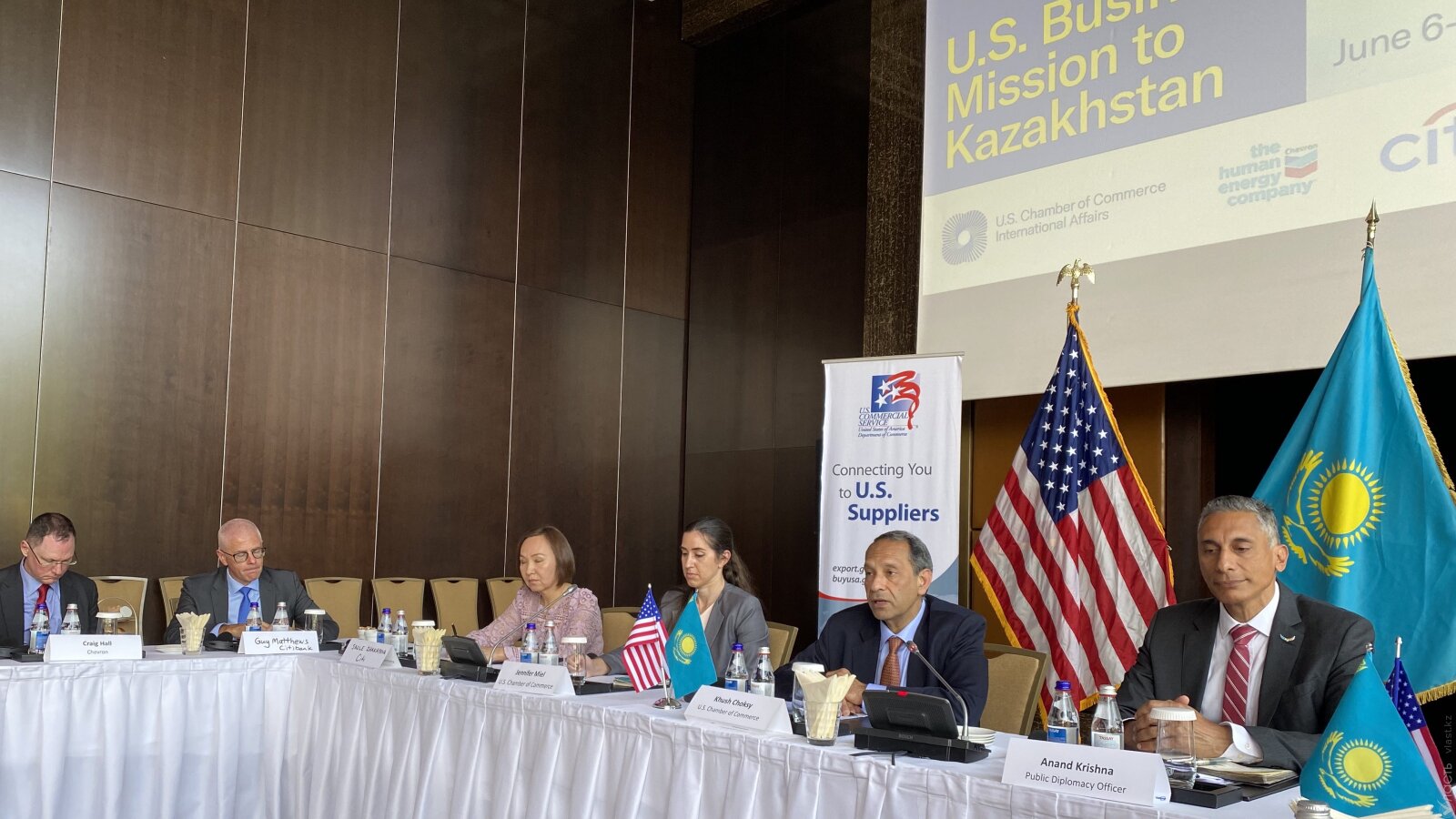A delegation from the US Chamber of Commerce’s US-Kazakhstan Business Council traveled to Kazakhstan on June 6 for a three-day visit, during which they plan to discuss ways to improve business ties with local partners.
Representatives of the Chamber visited Almaty on Tuesday and scheduled a trip to Astana in the following days, when the delegation will participate in a meeting of the Foreign Investment Council with President Kassym-Jomart Tokayev, the Astana International Forum, and AIFC Finance Days.
Though still emphasizing the importance of oil and gas, the mainstay of Kazakhstan’s budget, representatives of the Chamber highlighted the government’s efforts towards a diversification of the country’s economy.
Khush Choksy, the Chamber’s senior vice president of international development, said Kazakhstan has attracted a growing interest from US companies.
“We look to take this relationship to the next level, there are mutually beneficial things we can do,” Choksy said at a press conference in Almaty.
To a question from Vlast about concrete topics at the negotiation table, Choksy said that Kazakhstan needs to continue on its path to ease conditions for businesses.
“The marketplace is always ahead of any regulatory environment. Macro and cross-cutting, as well as sector-specific legislation needs to be implemented under the key pillars of diversification. We see opportunities in agriculture, technology, and tourism, for example,” Choksy said.
Jennifer Miel, executive director for Middle East, Turkey, and Kazakhstan affairs at the Chamber, added that Kazakhstan could take advantage of the geopolitical complexities by streamlining its legislation by implementing international standards.
“We would like to discuss business climate reforms in line with OECD standards to facilitate global FDI into Kazakhstan. Companies are attracted to Kazakhstan, but sometimes they get stuck. Enhanced predictability, sanctity of contracts, the enforcement of intellectual property rights would help unlock the tension in a lot of these sectors,” Miel said.
Regarding sanctions against Russia, a topical issue that US representatives had discussed last week in Almaty, Choksy said that the foremost goal of the Chamber is to shelter its members from unintended consequences of the sanctions regime that the US has imposed after Russia’s war of aggression in Ukraine.
“Kazakhstan and the US are aligned on the issue of sanctions. There can be unintended consequences, because the global supply chains are so integrated. We want to ensure that our businesses understand their Kazakhstani partners,” Choksy said.
Concerning potential stumbling blocks to the Caspian Pipeline Consortium (CPC), an international pipeline from Kazakhstan’s westernmost oil fields to Russia’s Black Sea port of Novorossiysk, of which several US companies are shareholders, Miel said talks are underway.
“We don’t want sanctions to impede US investment into Kazakhstan. We are working closely with our partners in the US government to make sure this is not the case with the CPC pipeline,” Miel said.
The Chamber representatives also mentioned the increased competition in Central, South, and East Asia for US investment. While Kazakhstan offers an opportunity, Choksy said the business environment needs to make it worthwhile.
“There is competition for investment dollars and our companies need to justify their investment. But, importantly, we wouldn’t be here if it wasn’t for the future opportunities that exist. Kazakhstan can be a springboard for the whole Central Asian market,” Choksy concluded.
Поддержите журналистику, которой доверяют.








